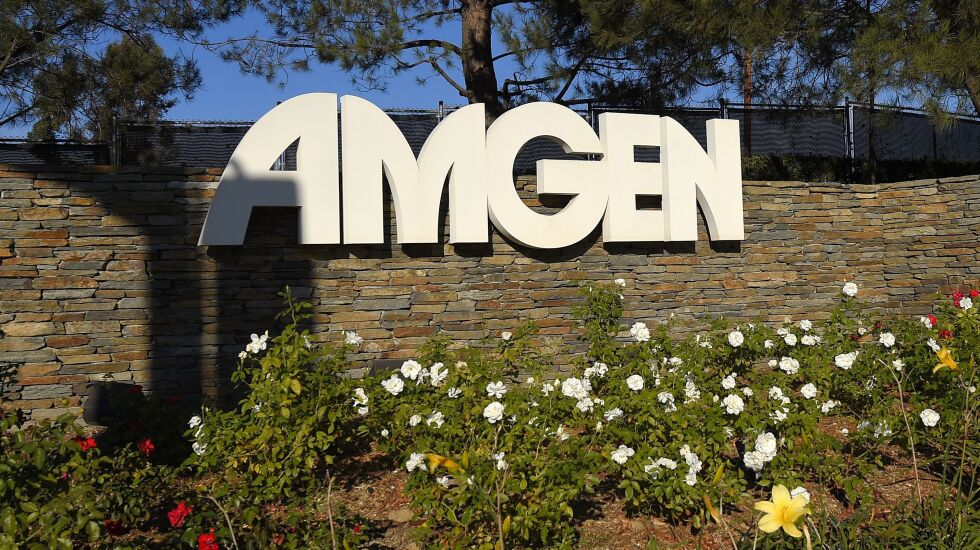
Amgen is spending more than $26 billion to dive deeper into rare disease treatments with the acquisition of drugmaker Horizon Therapeutics.
The biotech drug developer said Monday that it will pay $116.50 in cash for each share of Horizon, which makes a treatment for thyroid eye disease that generated more than $1 billion in its first full year on the market.
U.S.-traded shares of the Irish company had already soared about 30% since it confirmed late last month that it had begun “highly preliminary discussions” about an acquisition with Amgen, the French drugmaker Sanofi, and Johnson & Johnson’s Janssen division.
Horizon’s U.S. headquarters is in Deerfield.
Amgen had confirmed discussions were taking place and said that any offer it made for Horizon likely would be in cash.
The deal laid out Monday represents a premium of 48% to Horizon’s closing price of $78.76 before it made that late-November announcement.
The Horizon deal will give Amgen another chance to build its portfolio of rare-disease treatments after it closed in October a roughly $3.7 billion acquisition of ChemoCentryx, which focuses on autoimmune disease drugs.
Horizon Therapeutics PLC, based in Dublin, develops potential treatments for rare, autoimmune and severe inflammatory diseases. Its best-seller, Tepezza, is only approved in the United States and treats eye bulging and double vision from thyroid eye disease.
U.S. regulators approved Tepezza in early 2020 as the first treatment for thyroid eye disease. The drug’s sales more than doubled last year to $1.67 billion. That’s about half of the company’s total sales of $3.23 billion.
The FDA gave Tepezza “orphan drug” status, which comes with financial incentives and exclusive marketing, benefits that are intended to encourage drugmakers to develop rare disease treatments.
Horizon also makes Krystexxa for uncontrolled gout. Sales of that treatment grew 39% last year to $565.5 million.
Amgen Inc. is based Thousand Oaks, California.







